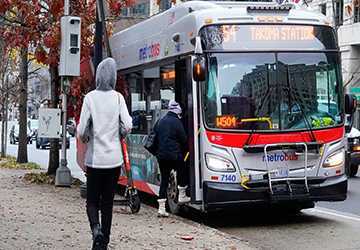5 Reasons Why Learning a Local Language Enriches Your Travels
Have you ever found yourself in a busy foreign market and wished you only knew a few local expressions? What if you try to ask for directions and get a blank stare?
Have you ever found yourself in a busy foreign market and wished you only knew a few local expressions? What if you try to ask for directions and get a blank stare?
Traveling is an adventure, but sometimes, the language barrier can make you feel like an outsider. Traveling to a new destination and not being able to communicate can be a frustrating and frustrating experience.
Everyone wants to connect more deeply with the world, but our limited vocabulary holds us back.
Immersing yourself in a new culture starts with understanding its language. This blog post explores five transformative benefits of learning some local languages.
Let's find these languages.

Five reasons to learn the local language first
Traveling is more than just checking out places on your bucket list. It's about immersing yourself in a new culture, getting to know the city's heartbeat, and connecting with the locals.
Learning the local language, even the basics, can transform your travel experience. Before setting off, let's look at the advantages of the local language.
1. Deeper cultural immersion and authentic experience
The local language allows you to experience the culture from a unique perspective. This is your golden ticket to fundamental interactions, from talking to an older salesperson about the history of her wares to sharing a laugh with kids playing in the park.
Don't just stay in tourist areas. Hike off the beaten track. Use your language skills to start a conversation, ask for advice, or listen to local stories.
Learn about the cultural nuances and taboos associated with the language. Some cultures may have formal and informal ways of addressing someone.
2. Increase comfort and confidence
Gone are the days of frantically gesticulating, playing riddles to find the toilet, or ordering food. A basic understanding of the local language can make everyday tasks more accessible and less stressful.
Carry a pocket phrasebook or language app with you. This will be a quick reference and help you build trust when communicating.
Always have an emergency kit list on hand. While locals appreciate you trying their language, they know you're a learner.
3. Build real friendships and bonds
Imagine dining with a local family, celebrating a local festival, or being invited to an intimate gathering.
Attend a local community event, workshop, or course. Participating in group activities allows for shared experiences and fosters connections.
Relationships are built on trust. Although words can be an icebreaker, always remain authentic in your intentions and interactions.

4. Enjoy economic benefits and save money
You can save money if you know the local language. Whether you're haggling at the market, taking local transportation, or taking advantage of exclusive discounts for residents, the local language can be the key to economical travel.
Learn numbers, currency terms, and basic negotiation phrases. These go a long way in ensuring you get the best deal.
Always be respectful when negotiating. Remember, this is the primary source of livelihood for many sellers.
5. Enhance self-confidence and personal growth
Learning a new language expands your cognitive abilities. It challenges your memory, improves concentration, and improves multitasking abilities.
This cognitive exercise and the excitement of successful communication greatly enhance self-confidence. Challenge yourself. Order food, ask for directions, or read the local newspaper in the local language.
It's okay to make mistakes. Locals generally appreciate the effort, even if the pronunciation could be better.
Trip completed
Language is the soul of culture. It gives us a glimpse into the community's history, emotions, and stories.
By learning the basics of the local language, you'll improve your travel experience and pave the way for real connections.
So why should you learn some local proverbs before your next adventure? Your future self will thank you.
Give it a try and enrich your trip with the melodies of local dialects!





